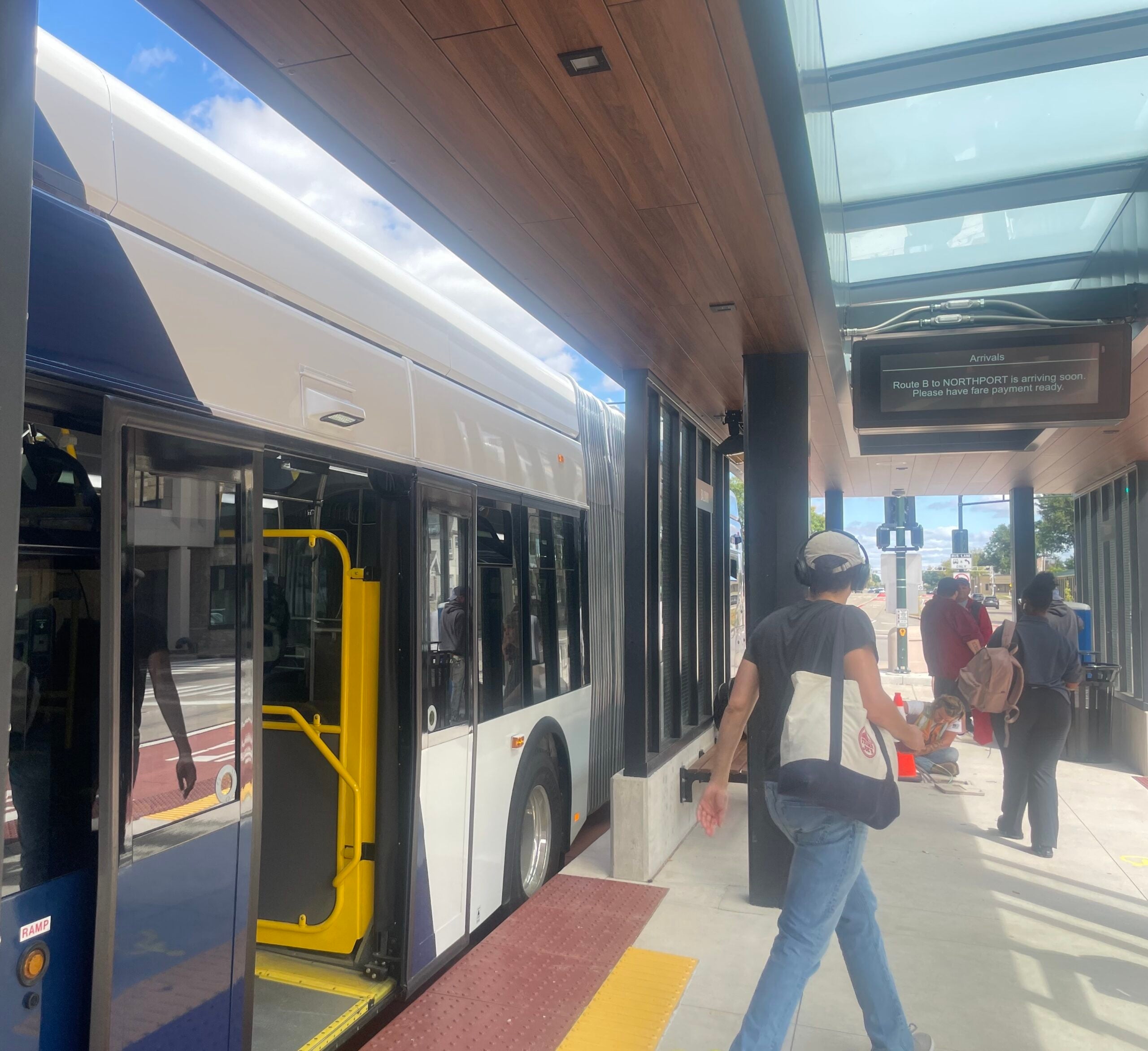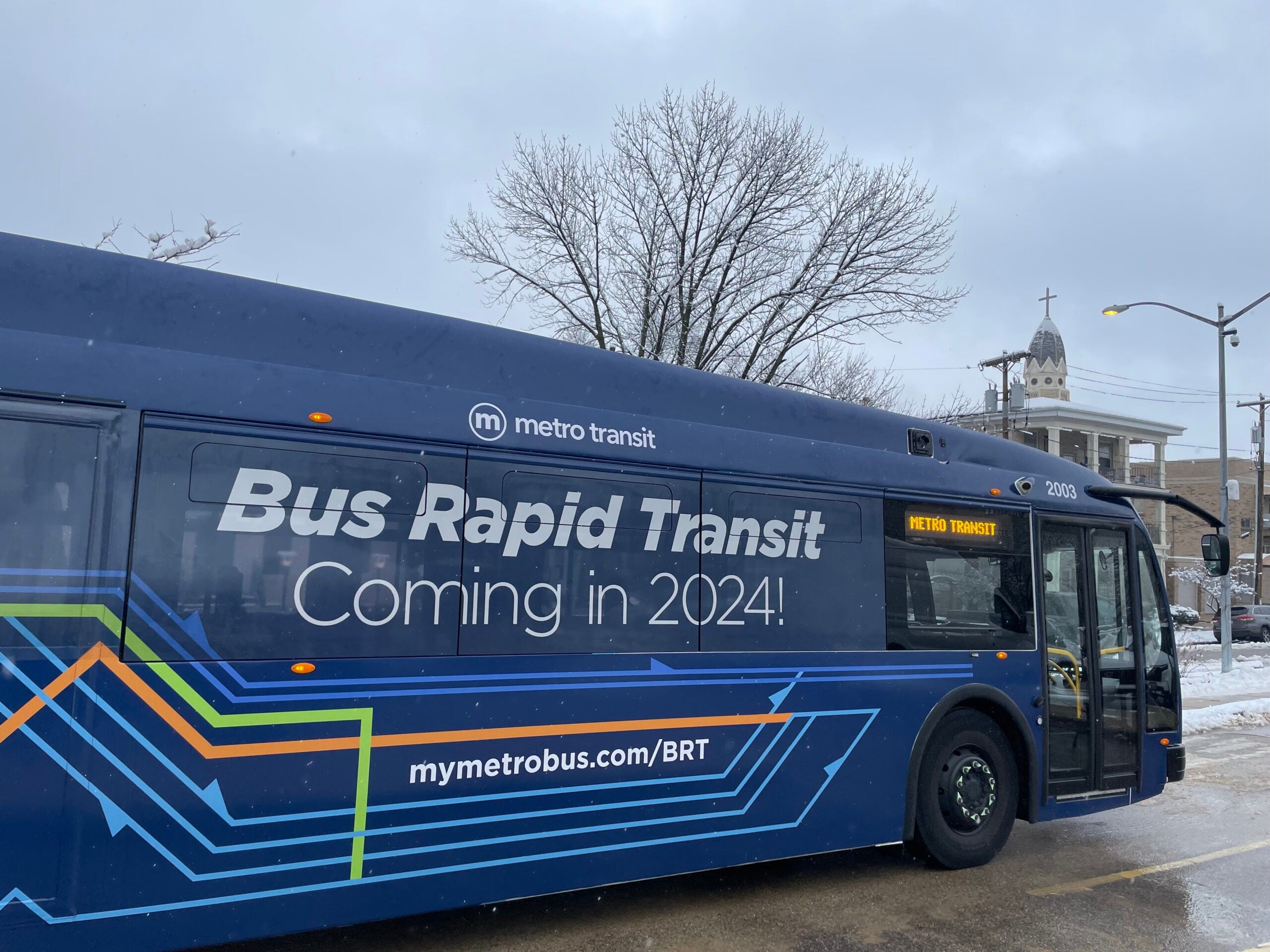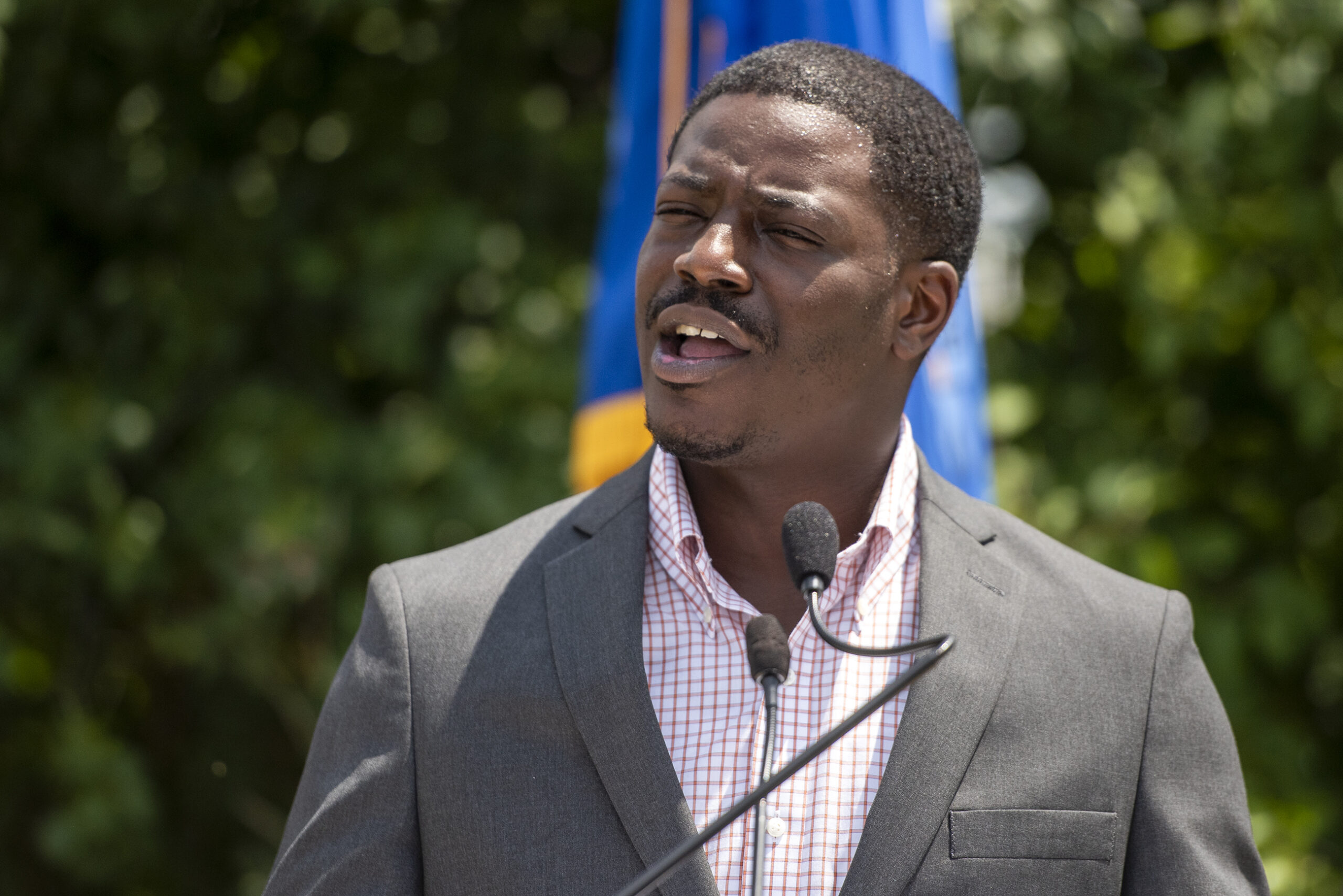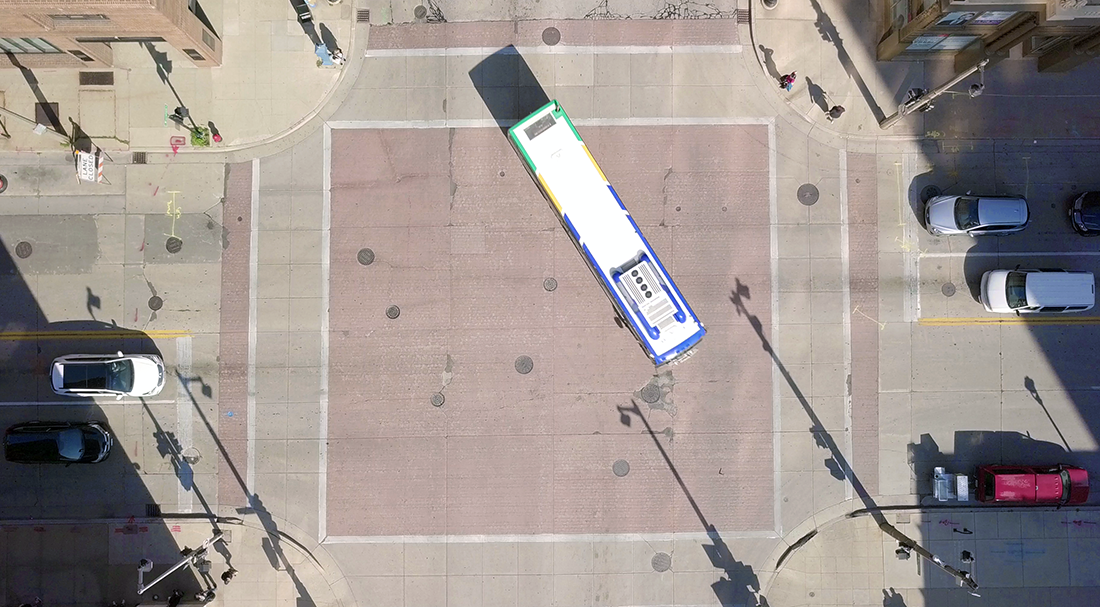Leaders in Milwaukee are looking at plans to create a new bus rapid transit line, which supporters say could cut down on traffic and improve transportation in and out of the city. Our guest explains the benefits and costs of creating the line. We also hear an argument that Democrats should invest more in people of color to create a larger voting bloc, and researchers have discovered gravitational waves.
Featured in this Show
-
Residents in Milwaukee could eventually have access to what’s touted as a more efficient public transit service.
Adopting Bus Rapid Transit, or BRT, is being floated by Milwaukee County officials as a potential option to accommodate residents and workers who use public transportation to get to work or run errands. BRT began in Brazil in the 1970s and is comparable to light rail or subway systems, but is unique from other bus routes in that it requires dedicated lanes for the buses with a longer distance between stops.
Additionally, the platforms for the bus stops align with the buses to make it more efficient to get on the bus. Riders are also required to pay in advance to make boarding more efficient.
There are about 10 cities in the U.S. right now with high-quality BRT systems, according to Joe Peterangelo, a senior researcher for the Public Policy Forum in Milwaukee, with more cities considering it as a viable option for public transportation.
In Milwaukee’s case, there have been ongoing debates about how best to modernize the city’s transit system, he said.
“There have been attempts in the past to try to develop a light-rail system,” Peterangelo said. “It’s possible that that could happen in the future still. But Bus Rapid Transit is a much more affordable way to provide a rapid transit service.”
According to Peterangelo, when the county was looking to the budgets of other cities that have built Bus Rapid Transit systems, it generally costs between $5 million to $10 million per mile. That’s compared to the $30 million to $50 million per mile that is budgeted to build a light-rail system.
If the Bus Rapid Transit secures funding by Milwaukee County, there are plans to have one line run along the east-west corridor, connecting the downtown area to the Regional Medical Center in Wauwatosa. Peterangelo said the corridor is already one of the busiest in Wisconsin and could become more congested once planned Interstate 94 construction gets underway in a few years.
Milwaukee County officials are currently working to design and plan for the project in order to make a case for federal funding.
“Most Bus Rapid Transit projects are supported in terms of startup costs by a federal grant,” said Peterangelo.
He said that this is usually through the New Starts/Small Starts program.
“What Milwaukee County is planning is to apply to a Small Starts grant that would help start up the project. So, it would pay for 80 percent of that startup costs,” he said.
Peterangelo said that the state normally doesn’t help pay for capital projects, but a case could be made for state funding to provide some money in order to offset the burden to travelers who might be affected by the I-94 construction.
No date has been set to potentially begin construction on the project.
-
Scientists World-Wide Are Celebrating The Discovery Of Gravitational Waves
Researchers at the Laser Interferometer Gravitational-Wave Observatory–or, LIGO–announced today that it has the first official detection of gravitational waves. This discovery helps solidify Albert Einstein’s general theory of relativity. Joining us to talk about the news is Sebastian Heinz, Professor of Astronomy at the University of Wisconsin-Madison.
-
Bus Rapid Transit in Milwaukee?
Milwaukee County officials are taking significant steps in planning for a possible B.R.T or Bus Rapid Transit route in Milwaukee. A senior researcher for The Public Policy Forum in Milwaukee joins us to discuss the plan.
-
Are People Of Color The Future Of The Democratic Voting Block?
Democrats are making a big mistake trying to woo white swing voters, according to our guest. He says they should be investing of communities of color who, together with white progressives, constitute a new majority.
Episode Credits
- Rob Ferrett Host
- Veronica Rueckert Host
- J. Carlisle Larsen Producer
- KP Whaley Producer
- Veronica Rueckert Producer
- Joe Peterangelo Guest
- Sebastian Heinz Guest
- Steve Phillips Guest
Wisconsin Public Radio, © Copyright 2025, Board of Regents of the University of Wisconsin System and Wisconsin Educational Communications Board.



